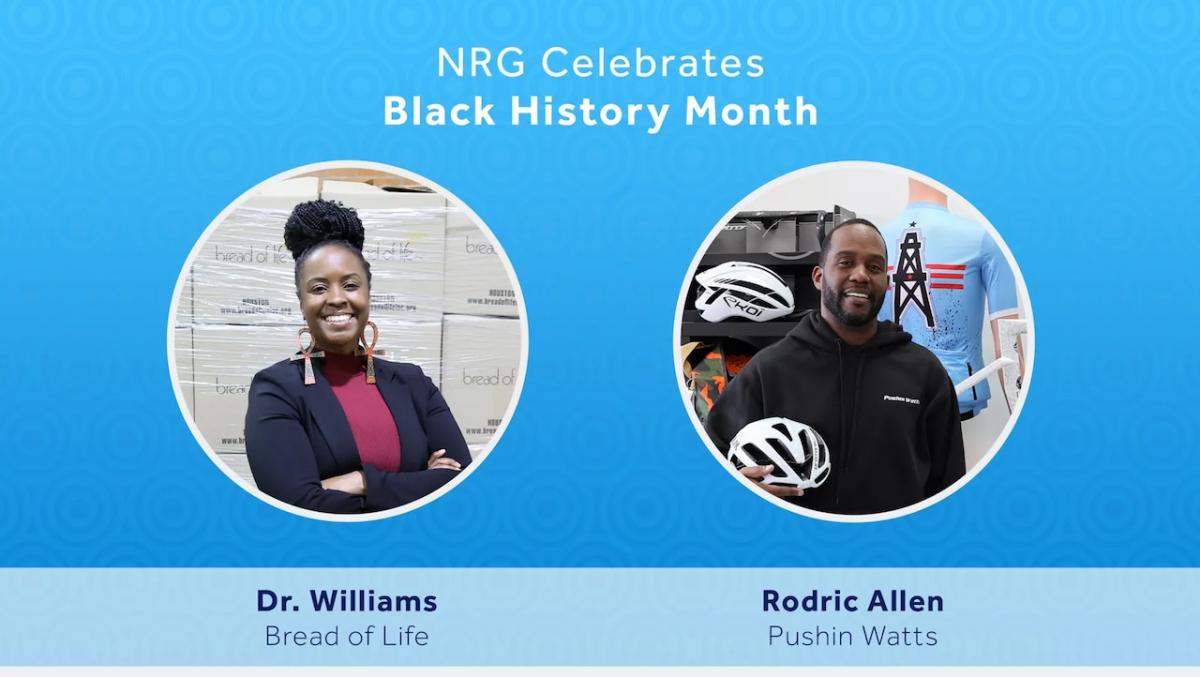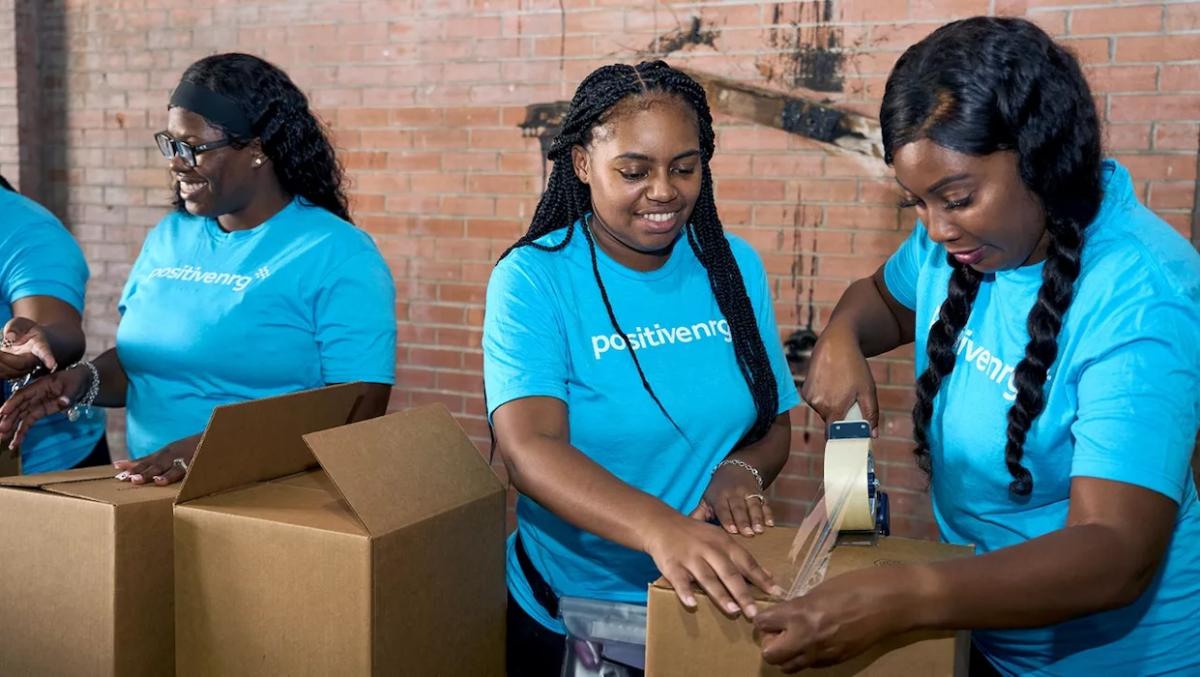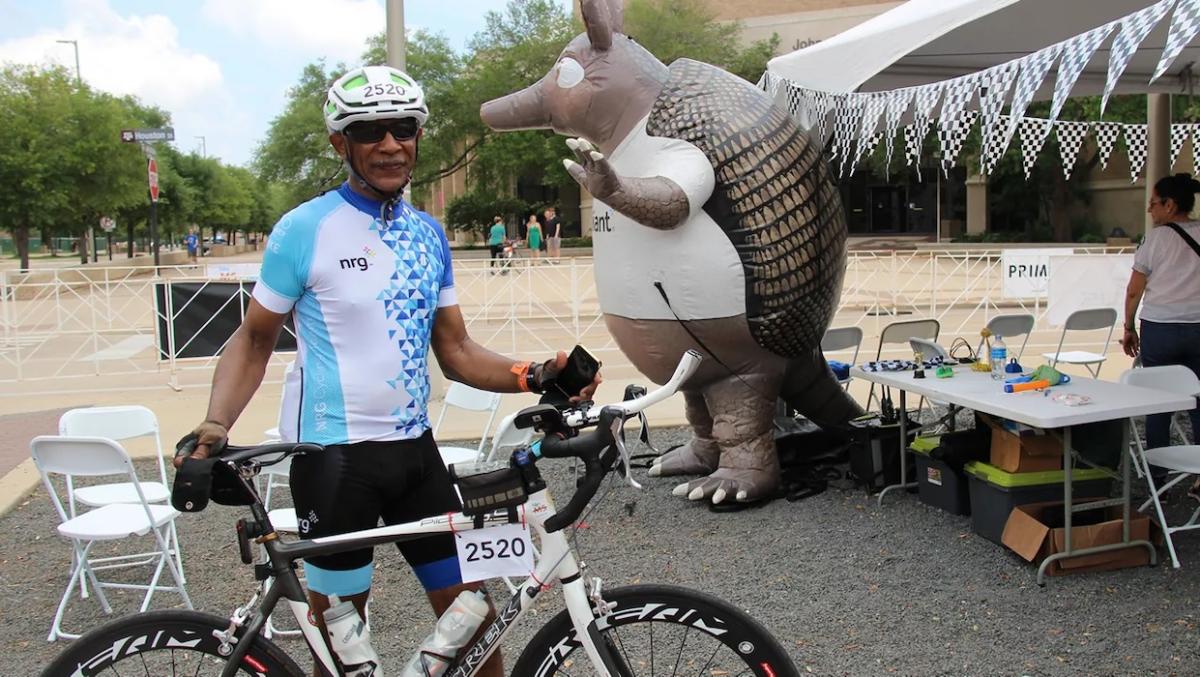Celebrating Black Excellence: Amplifying Our Partners’ Voices
Originally published on NRG Energy Insights
As we celebrate Black History Month, we’re reminded of the strength, resilience, and exceptional achievements of the Black community. This month provides an opportunity to listen and learn from the narratives that have shaped history and continue to influence our present.
To highlight Black excellence in our community, we interviewed two of our partners to share their successes and acknowledge the difference their hard work is making throughout Houston.
Bread of Life, Inc.
Bread of Life is a nonprofit founded in 1992 by Pastors Rudy and Juanita Rasmus with the initial purpose of feeding Houston’s unhoused population. The organization quickly evolved to offer a range of services and support to aid underserved communities. Bread of Life provides services that promote a sense of love, hope, dignity, and belonging throughout the community.
We support Bread of Life through volunteering and monetary donations. Our teammates frequently give their time at Bread of Life to aid their staff and further our mission of strengthening food security in our communities. In 2023, we submitted Bread of Life for the Houston Chronicle's Houston Gives Charity Ad Giveaway, a program that distributes up to $1 million in advertising value among various local non-profits, to spotlight their work and achievements
Dr. Monique Williams, Chief Advancement Officer at Bread of Life, gave us more insight into the organization’s mission and impact.
Could you share the core mission of Bread of Life and how it addresses the unique needs and challenges faced by Black communities?
“The heart of our mission has always been bridging the gap of food insecurity. We provide resources for those who are food insecure, and this began with one hot meal over 30 years ago that morphed into 500 hot meals nearly every day for 20 years.
“When you do that specific work for that long, you begin to learn your community. Unfortunately, over half the unhoused population in Houston is made up of African-American individuals, so any work we do touches our community.”
How has collaboration with NRG allowed Bread of Life to extend its reach and impact?
“We’ve been around for 31 years in the heart of Houston, and there are still far too many people who don’t know who we are and what we do. Using this gift [NRG’s nomination] with the Houston Chronicle [Houston Give charity ad], we’re going to be able to tell our story and hopefully get that story into the hands of not only those who want to give more, but also those who are in desperate need of receiving more.”
Are there specific success stories or achievements from Bread of Life that stand out as particularly meaningful during Black History Month?
“We became a sub-grantee of the Bezos Day One Fund given to us through the Coalition for the Homeless. This grant is digging into the behavioral and mental health support of families. The issue of behavioral and mental health support for the African-American community is such a great need. We’re excited about expanding from the physical support we give to looking at the whole person.”
Pushin Watts
Pushin Watts started in 2018 in founder Rodric Allen’s condo in Thailand, where he developed the idea of bringing a boutique feel to the cycling industry. Allen wanted customers to feel the apparel and try it on before purchasing to ensure that they were satisfied with the item. In 2021, after selling online during the pandemic, he opened a storefront in Katy, TX.
In addition to providing cycling gear, Pushin Watts supports the community through initiatives such as teaching children bicycle safety and working with nonprofits. Pushin Watts is also producing special cycling jerseys to mark the 20th anniversary of the NRG Cycling Team's participation in the MS 150 Bike Tour.
Allen shared more about his company and their impact in the community.
How has the legacy of Black entrepreneurs and business leaders influenced the mission and values of Pushin Watts?
“Black entrepreneurship paved the way for me to do what I’m doing. For instance, let’s take Dapper Dan, a Black entrepreneur and high-profile fashion designer. I do a lot on the fashion side, so understanding his story motivated me to say, ‘Let me play in this arena of cycling, but let me do it from the perspective of Dapper Dan.’ Seeing that legacy and having those leaders influence me gave me an idea of ‘it’s possible.’”
How do you see diversity driving innovation within sports apparel and what role does Pushin Watts play in shaping this narrative?
“Cycling was a predominantly white sport. Now we’re getting to this space where it’s becoming more inclusive. During COVID, there was an implosion of new cyclists, most of whom were people of color. USA Cycling created a DEI program because they saw this influx and noticed that there are opportunities within other cultures to do cycling a different way.
“We’re trying to push the narrative toward letting people know there’s more than just traditional cyclists. There are enthusiasts, hobbyists, people who want to ride and be fit, and the people who just need to get from point A to point B.”
Are there any notable achievements or milestones at Pushin Watts that align with the spirit of Black History Month?
“Being minority-owned is one thing in Black excellence. Another is that we were associated with a few local bike rides in Houston. One was the Black Wall Street 100. There are survivors of the Tulsa Massacre here in Houston, and we were hosting that ride for their benefit.
“We were also the affiliated sponsor for an event hosted by the District One Commissioner of Missouri City, Rodney Ellis. He hosted that bike rally in support of Black History, and they gave me an opportunity to host the event alone this year.”
Lift every voice
Black History Month is a call for us all, regardless of our backgrounds, to join the conversation about diversity and empowerment. It’s an invitation to learn, listen, and take action. Let’s celebrate the achievements of Black communities and reflect on how we can contribute to a more inclusive and equitable future.




